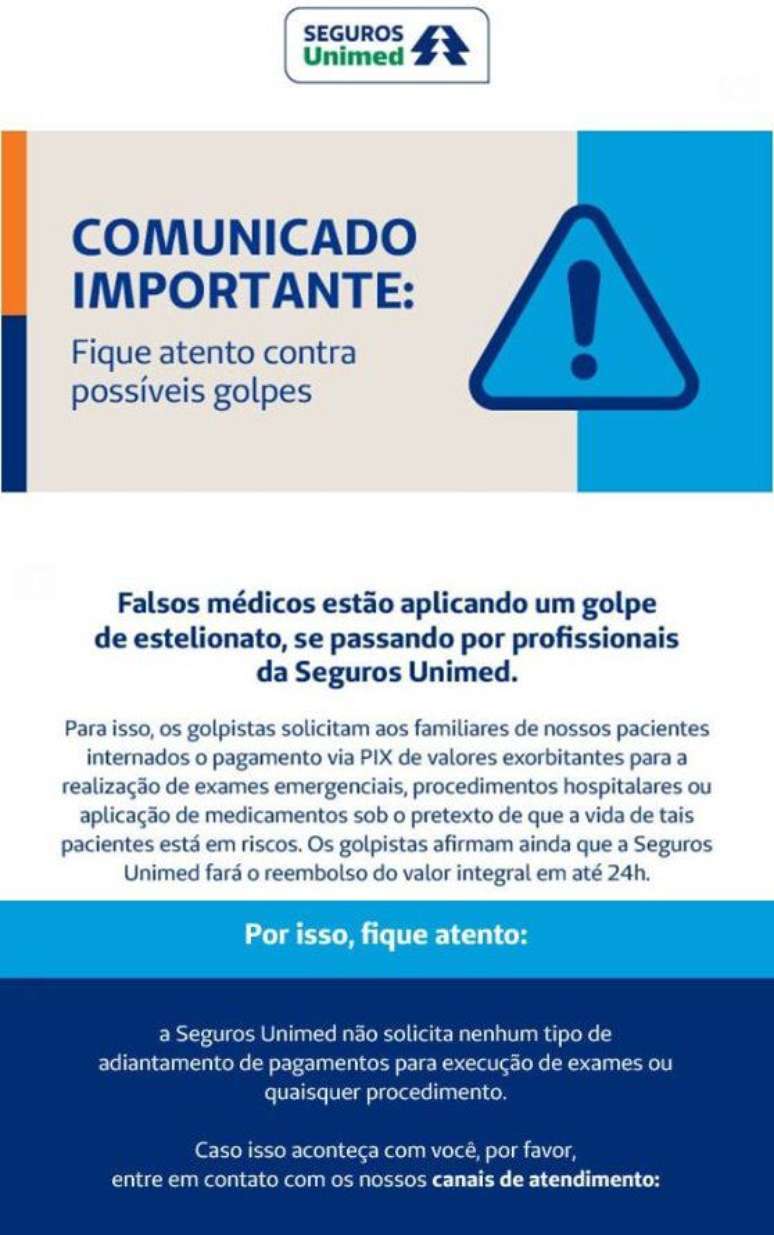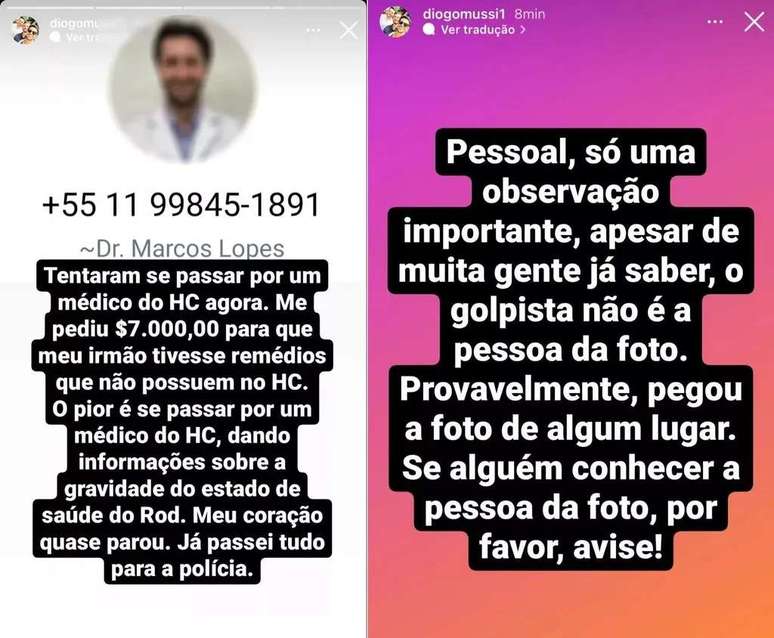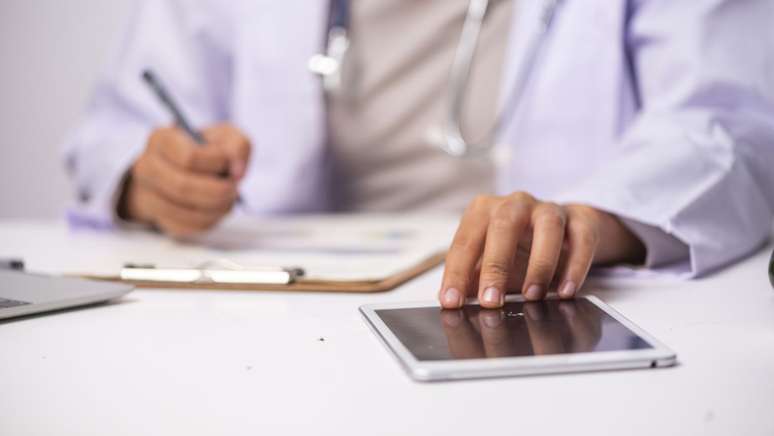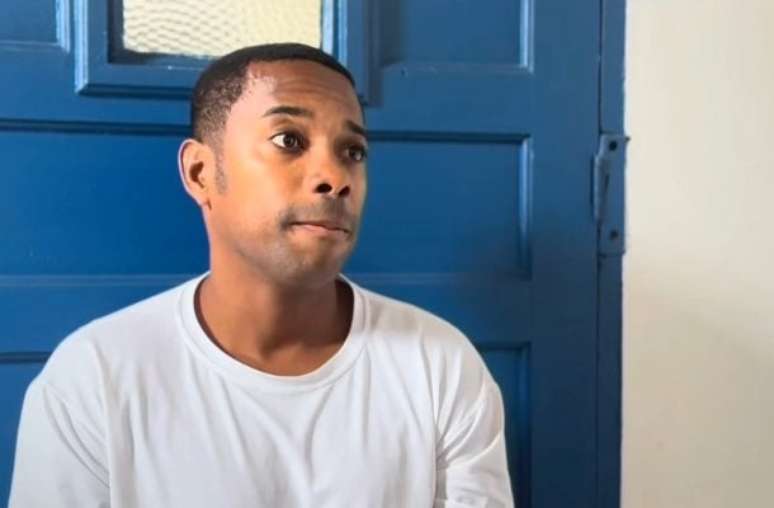Bandits posing as doctors of a health insurance company to demand high payments from families of patients admitted for urgent procedures
Fake doctors are contacting the families of hospitalized patients to apply scams, requiring high values in transfers via Pix. Claiming to be linked to health insurance or health insurance, the bandits say the payments are tied to emergency tests, procedures or emergency medications, which would be necessary to avoid risking patients’ lives.
- Fake doctors: how to look for the CRM and not fall into traps
- 80% of mental health apps lack minimum security and privacy standards
The scam was reported by Seguros Unimed, one of the leading companies in the Brazilian healthcare sector. In a statement sent to customers by email, the company indicates fraud in this category, which circulates from time to time and they also affect family members of famous people, with criminals always looking for a quick economic gain.

In this case, the health and safety of loved ones are at stake, which are used as a device to generate urgency regarding the request, usually made via WhatsApp. The sums requested by the bandits are exorbitant, but would be justified by the need for urgent treatment for the patient, with the promise of reimbursement by the Health Authority within 24 hours, in the case of the scam reported by Seguros Unimed.
The sum is never returned and, as the company warns, those responsible are not even linked to health insurance or are part of the clinical staff of hospitals. Security flaws would be responsible for obtaining patient data and health status hospitalized patients and their families, who are contacted directly; in some cases, the identity of the doctors actually working in the care units is used as a way to give the coup a greater appearance of legitimacy.
How to protect yourself from fake doctor scams
Seguros Unimed is specific in communicating this to its customers. In the email, the company clarifies that “it does not require any type of advance payment for carrying out tests or any procedure”. The recommendation is that customers contacted in this way use the agreement’s guidance and complaints channel to log cases.

Staying calm and paying attention to incoming contacts is ideal at times like this, especially in times of urgency. Ideally, get in touch with hospitals and doctors known to validate requests of this type before making any transfer. If the patient is being treated in a health unit of the SUS (Sistema Único de Saúde), for example, it is important to remember that the consultations are free.
In the meantime, it is worth contacting the insurance call centers to understand how the reimbursement procedures and particular payment methods work. Again, the idea is avoid making transfers via Pix for requests arriving via WhatsApp without first being sure that the procedure is legitimate.
Trending on Canaltech:
- The Chandrayaan-3 probe performs another maneuver and approaches the Moon
- iPhone 15 Pro has leaked a non-working prototype showing off the design
- Elon Musk considers trading fight with Mark Zuckerberg for verbal debate
- 5 indelible marks that humans leave on Earth, from plastic to plutonium
- 10 References and Easter Eggs in Thor: Love and Thunder
- Xiaomi launches the air fryer with “window”, 5.5 liter capacity and smart features
Source: Terra
Rose James is a Gossipify movie and series reviewer known for her in-depth analysis and unique perspective on the latest releases. With a background in film studies, she provides engaging and informative reviews, and keeps readers up to date with industry trends and emerging talents.




![Tomorrow Belongs to Us: What’s in store for Wednesday 29 October 2025 episode 2063 [SPOILERS] Tomorrow Belongs to Us: What’s in store for Wednesday 29 October 2025 episode 2063 [SPOILERS]](https://fr.web.img2.acsta.net/img/bd/91/bd91cdd6caf823af3b0287cd39a943a5.jpg)


